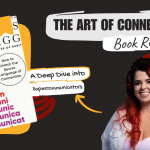Just because you do a great job curating reviews, doesn’t mean a bad one won’t sneak through from time to time… but just like a complaint made in person, negative reviews don’t have to result in lost business. Instead, you actually have the opportunity to attract new business in this public setting, depending on how you handle the feedback.
Online reviews play a significant role in the way you and your brand are perceived, so it’s really important for you to not only have a plan for dealing with negativity, but to also be present and engaged with all of the feedback being posted about you. You can take control of your brand perception by managing online reviews, but the first and most important step is simply just figuring out where people are leaving feedback about your services, and how to be the first one notified when anyone does.
Hiding in Plain Sight
Most reviews about real estate agents end up on a few key sites like Realtor.com, RealSatisfied, Zillow, and Yelp, and your potential clients are highly likely to look you up online before deciding to sign a contract with you. So get familiar with every one of these sites, how they work and what kind of reviews people leave on each, because there could be reviews out there attached to your name that you’re not even aware of.
Once you know where reviews are being posted about you, or you’ve decided where to encourage people to leave reviews, you’ll want to be the first to know of any new activity. This “first-alert” is essential to managing your online image, but it also is the best, and sometimes only, opportunity you will have to change the narrative, and perhaps even turn a frustrated client into a fan.
Stay in the Know
Unless you’re psychic (albeit you probably know when a bad review might be coming), you’ll want to set up some automated tools that help alert you when things are posted about you.
When it comes to automated alerts there are a bunch of options out there such as:
- Google Alerts
- Social Mention
- Trackur
- SentiOne
- … and many more
While some of these are paid options, Google Alerts is totally free and if you’re not already using it, I would highly suggest setting it up! Don’t worry though, this is as simple as running a Google Search, and once you’ve set up an alert you’ll get notified when any new piece of content related to your search appears online! How great is that? (There are also options for how often you receive these notices.)
(Pro Tip: If you want to take Google Alerts to the next level, try using the same Search Operators we previously taught you)
So… you get alerted about a 1 star review and proceed to read their lengthy comments… now what?
Reviews Are a 2-Way Street
At first – nothing! Whether we want to or not, we all have an innately emotional reaction to someone negatively reviewing us. The last thing you want to do is respond in anger. However, that doesn’t mean you shouldn’t write a response.
One of the healthiest things you can do is just write down what you’d like to say… but do not send it. Wait 24-48 hours and read over what you wrote down. A majority of the time, you’ll want to rewrite it, and now that you’ve calmed down and can think logically and objectively, your response will end up being constructive rather than emotional.
This practice has been used for generations by some of history’s greatest leaders. One of my favorite examples of this is of Abraham Lincoln writing letters that he never sent. After he was assassinated, they found drawers full of letters to Southern Generals and Politicians he had written in anger, and then replaced days later with more reasoned replies that he actually sent.
You’ll notice though, the greatest leaders in history always did one thing – they responded when they were called upon. Good or bad, you’re going to want to respond to every review you get. You’ve likely asked for the feedback from your clients in the first place, so it’s good etiquette in general to acknowledge their reciprocation, but moreover it’s an opportunity to highlight positive elements of their review and further demonstrate how connected you are with your clients to potential prospects.
When you’re dealing with negative feedback you’ll want to keep these 6 tactics in mind, and possibly use a combination of them to be most successful.
6 Strategies for Managing a Bad Review
- Contact the Review Site – if you feel the review is slanderous, defamatory or fraudulent you can contact the review site directly to have the review taken down, and the user blocked from leaving further comments. You should only do this in the rarest of cases and it’s not a strategy for dealing with legitimate feedback on your services, regardless of it’s negative or positive nature.
- Familiarize Yourself with the Culture of Online Review Sites – Some sites are built for critical feedback to help you improve your services while others are there to showcase your wins. Knowing what type of site you’re on can add context to the review that was left for you. A lot can get lost online via text, and it can be easy to misconstrue constructive criticism as an angry critique.
- Join the Conversation (but not immediately in anger) – As I mentioned above, you should take some time before responding so you’re thinking logically and then respond to every comment objectively. Don’t treat it as just a tit-for-tat response though, this is an opportunity for you to listen, have a conversation and start a dialogue about what you can do to make sure this situation doesn’t happen again.
- Highlight the Positive – Even the most frustrating transactions do have some positive aspects, but sometimes it’s easy to forget them amidst the other emotions. While you should acknowledge points of frustration and any shortcomings during the transaction, it helps to offset that sentiment with the positive. “I totally get your frustration with the paperwork taking longer than expected, we definitely had to work through a few unique challenges together. I am happy we were able to get it for $10,000 less than expected though!”
- Encourage Positive Reviews – One bad review isn’t going to destroy your online reputation. Funny enough, negative reviews can even be beneficial. When people only see positive reviews on an account, they’re often skeptical about the legitimacy of it. In reality, people consider 3 important factors when looking at reviews – the recency of the feedback, the volume of reviews left, and the average of what’s being posted. If you see 9 great reviews – and one mediocre or negative review – you barely pay attention to the negative, rather weighing the overall sentiment. So, drown out any negative reviews with positive ones!
- Develop a Strategy for Responding to Threats – When it comes to negative reviews, it seems like everyone considers themselves a “Social Influencer.” It has become more commonplace for people to use the threat of a bad review as an ultimatum in a deal – and you need to be ready with a plan. There are really 2 options here: 1) you can cater to the threat within reason (which is the preferred method for most businesses), or 2) you can stand by your practices and let them review you. Most times they won’t.
The Key is Positivity
While it’s great to have a strategy for managing a bad review when it happens, keep in mind that your ultimate goal is to set and fulfill expectations that drive in positive reviews. Last week, we covered my 5 part plan to consistently get great reviews, which in most cases will be your best strategy – and a way to stop negative comments before they start.








Leave a Reply